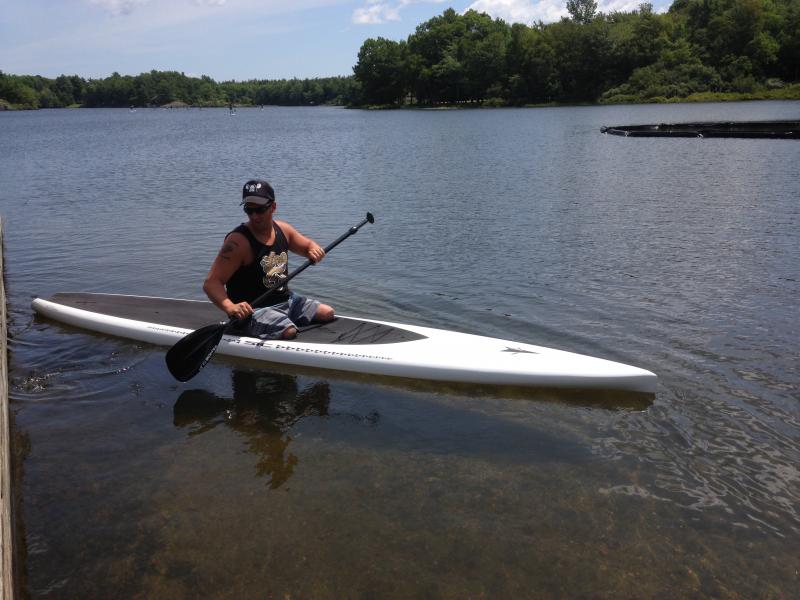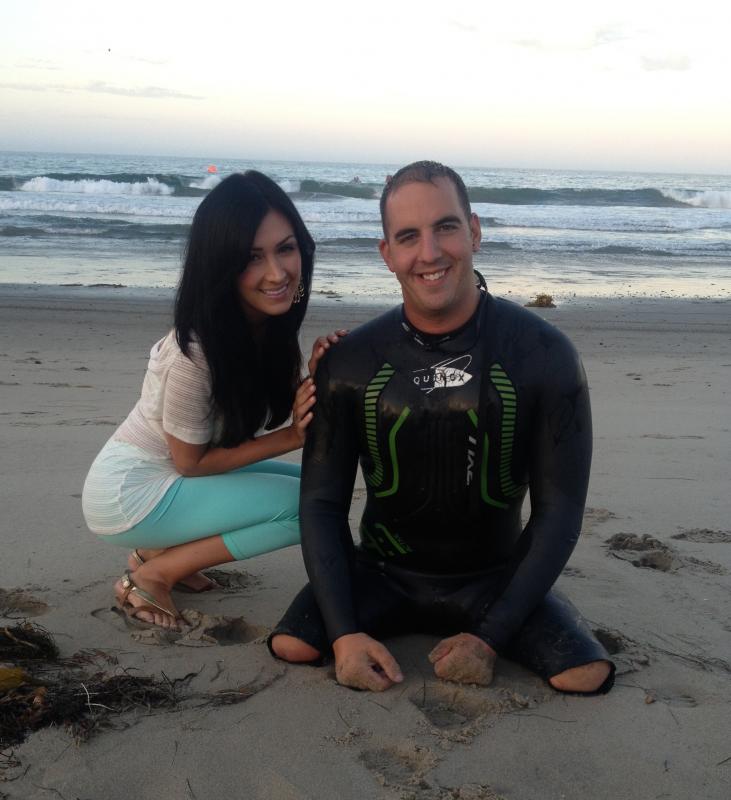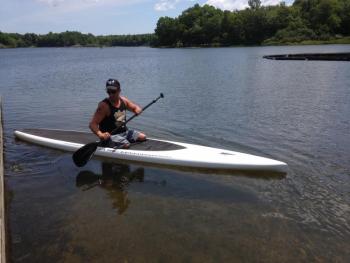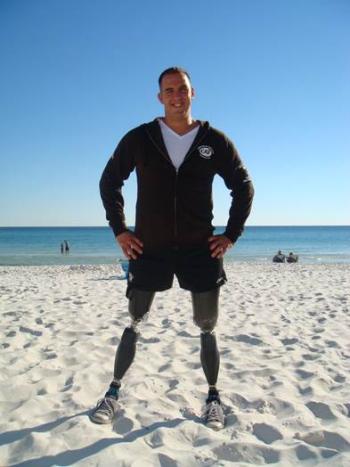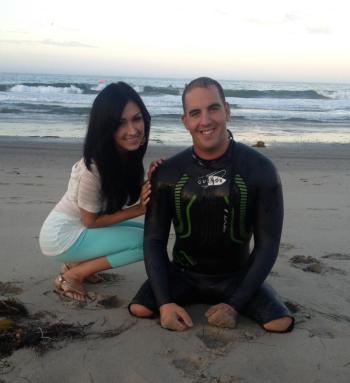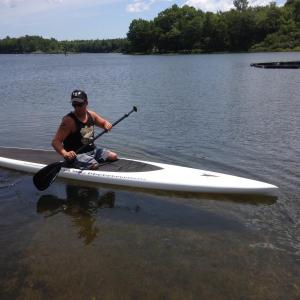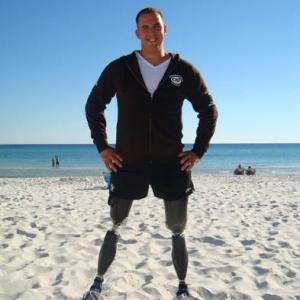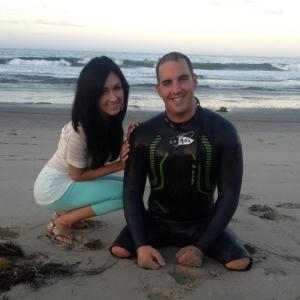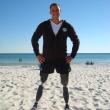Meet Staff Sgt. Mark Zambon, a Marine with a lust for life
When Mark Zambon was 18, he met up with a Marine recruiter who showed him a book of different jobs available in the Marine Corps. Zambon flipped through the pages until he came to an illustration of two guys in green camouflage uniforms laying on their stomachs upon berm. Five hundred yards in front of them was a massive fireball. He saw the words: Explosive Ordnance Disposal (EOD). “I asked the guy? What? You get paid to blow stuff up? I was pretty much sold after that,” said Zambon.
Growing up in Michigan with six brothers, he was the second oldest.
“It was a small town so we did so many outdoor things; we hunted, snowboarded, skied. I was sort of a punk kid, got in a lot of trouble. And that’s sort of who the Marines attract. You’ll find in many units kids who came from broken homes or kids who came from whole families, but who were the troublemakers. That was me.”
From 2006-2012, Zambon worked up to the rank of Staff Sgt. as part of a Marine explosive ordnance disposal company whose job was to support the ground troops. He went back for six deployments — three in Iraq and three in Afghanistan, and during that time, he would lose three fingers on his left hand when a bomb he was trying to clear went off as well as both his legs in a bomb blast in 2011 , his last deployment, in Afghanistan.
Every day that Zambon went to work with his team, he was prepared for the worst. He was surrounded by colleagues who became amputees in the hair breadth of a second and who lost their lives.
“In 2010, that year saw the heaviest losses for Marines,” he said. “That was my fifth combat deployment. After I lost my fingers, no one in the Marines was asking me to go back. Everyone was like ‘you’ve done your time, do your rehab and go home.’ But my teammate, Sgt. Mike Tayaotao, who got killed a month before his tour was done, taught me things from his passing that changed my life. The most profound thing I experienced was to meet his family afterwards, but I was never able to say thank you to Mike for what he gave me. I thought that if I went back for another deployment after I healed, it would be incredibly dangerous but that would satisfy me to say thank you back to the community where Mike came from and where so many of my other friends passed away.”
So, he went back in 2011. He was moving with his team in a single file line with . An infantry squad was escorting them to a site where other signs of possible explosive devices (IED) had been discovered. As they went up a hill, they were all ahead of Zambon, his lead mine sweeper, infantry squad leader behind him, a Navy Corps medic, his robot operator and his demolition man.
“We crossed the street and went through a hole in a mud wall that the squad had made a week prior with an explosive charge to gain access to the breech. Unbenownst to us, someone had buried a pressure-initiated IED in the rubble. It had a low metallic signature to it and the lead sweeper failed to detect it. Everyone stepped over the switch. And so many times in this situation, it’s just luck. So, when I walked over it, I assumed it was clear.”
While Zambon was recovering from the amputation of both of his legs he learned that a 15-year-old kid had been paid to plant the explosive device. His mother had turned him in.
“I don’t hold any ill will against him,” he said, “I mean it’s war.”
”It falls under the category of combat and stuff happens,” he said of his loss. “I’ve met the greatest friends, the greatest people on this planet from the Marines,” he said. “I think it’s the most ultimate expression of love that one can do for other people, to be ready to lay down your life. It’s been a very humble, wonderful experience that I’m grateful to be a part of.”
Zambon doesn’t look back. “When I thought of my feet, I thought of all the happy places they had taken me, cross-country motorcycle trips, through romantic relationships, every place it brought me. I didn’t regret anything; I just looked forward to what progress could be made in prosthetics in the future. Since my legs got blown off, I don’t let myself get in a negative mindset; I just try to seek out the path of conquering new things.”
Since his last recovery, he has climbed Mount Kilimanjaro and did a headstand at the top. Last year, he became first bomb tech in Department of Defense to return to duty after losing his legs to teach bomb disposal techniques at the Eglin Air Force Base in Florida. At EOD School, he worked with students from all four branches of the military (Navy, Marines, Army and Air Force) as well to international students. Now training as a a professional ocean swimmer, he captained the triathalon team in Malibu, CA and is currently training for the Paralympics.
Supported through various nonprofits including Challenged Athletes Foundation Operation Rebound, he trains by swimming five times a week in addition to weight-training, hiking and yoga.
Zambon was in the Midcoast this past weekend for the 2014 Lobster SUP Cup. Registrations for the Lobster Sup Cup benefit for the Challenged Athletes Foundation's Operation Rebound, the premier sports and fitness program for veterans with permanent physical disabilities. A shoulder injury prevented him from participating in the actual paddleboard competition, but characteristic of his positive outlook, he was able to gave a talk at the Camden Yacht Club, attend the parties and races and ride in a chase boat. Breathing in the slower pace of Maine life while he was here, he was able to get in a leisurely swim in Hosmer Pond commenting, “It tastes like the water in my hometown ponds in Michigan; those are smells and tastes you never forget.”
For results on the 2014 Lobster SUP Cup visit: lobstersupcup.com
Kay Stephens can be reached at news@penbaypilot.com
Event Date
Address
United States

